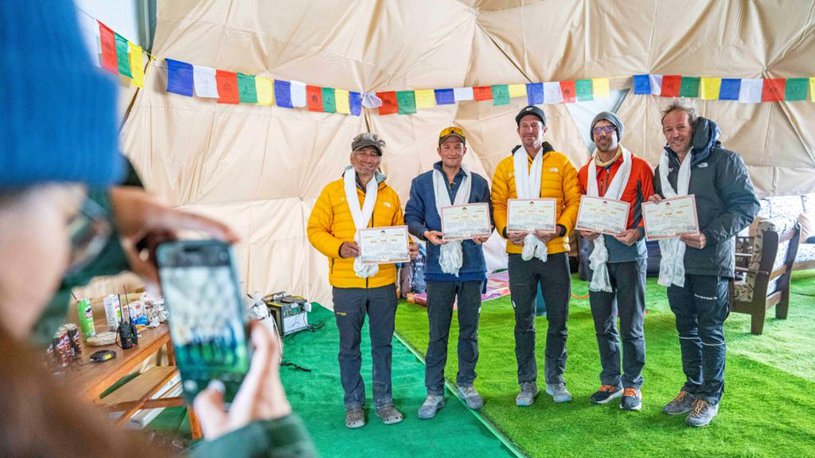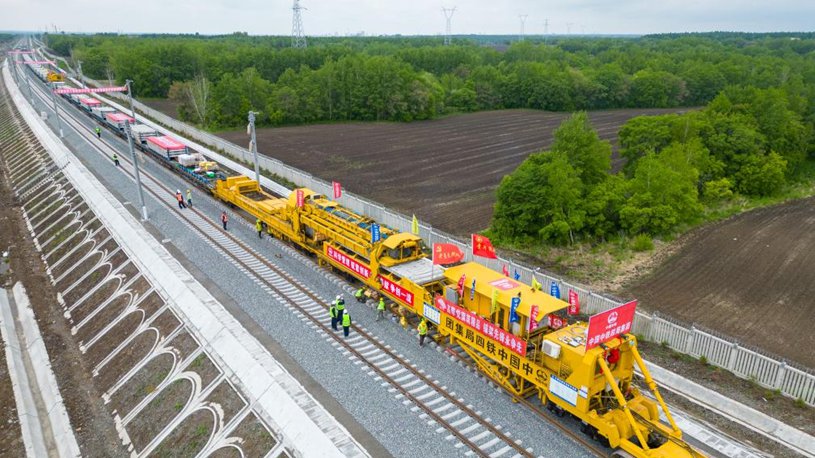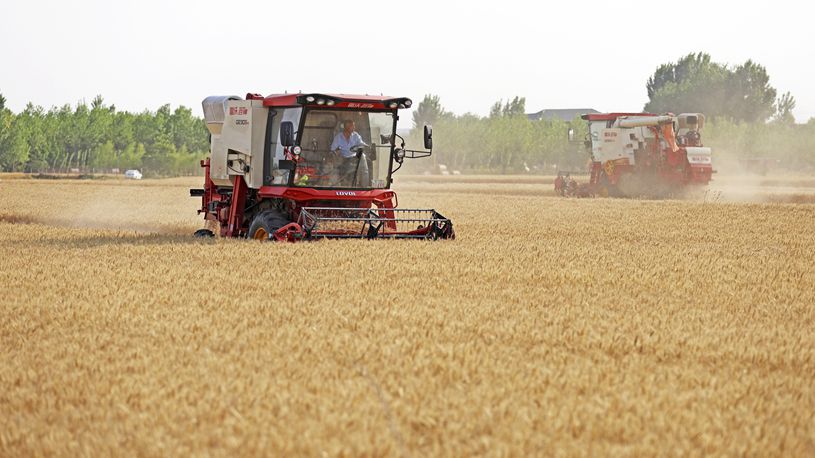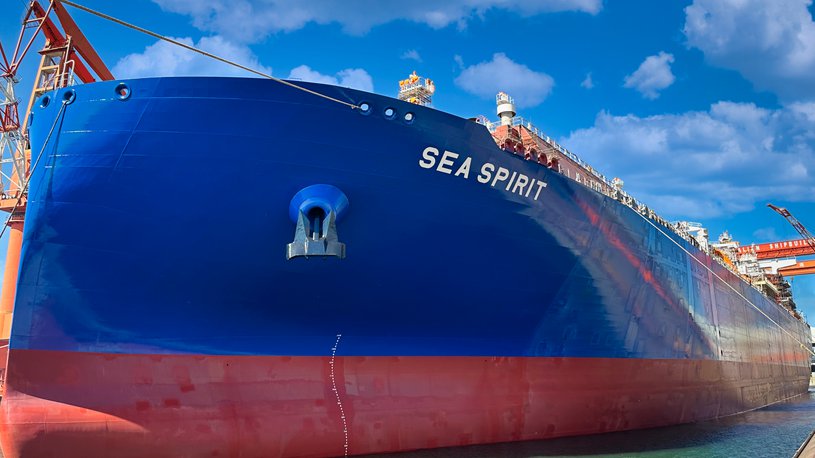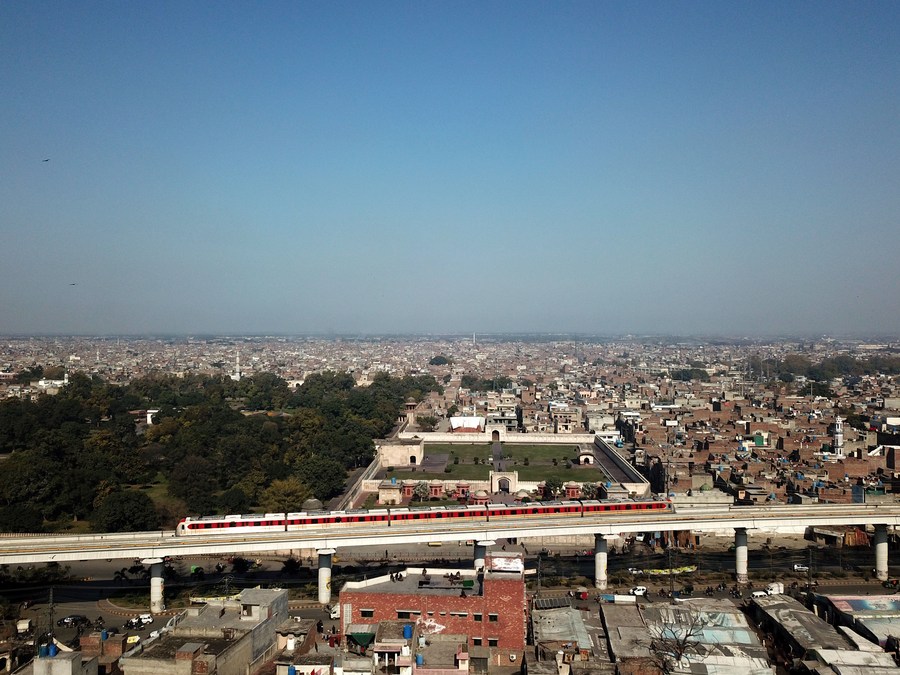
An aerial drone photo taken on Feb. 2, 2024 shows an Orange Line Metro Train (OLMT) running on the track in Lahore, Pakistan. (Xinhua/Ahmad Kamal)
ISLAMABAD, May 29 (Xinhua) -- Pakistani Prime Minister Shehbaz Sharif said on Tuesday that China is a key partner in his country's development and growth, bringing socio-economic benefits to the people of Pakistan.
Pakistan desired to further enhance its cooperation with China in various sectors including agriculture, information technology, and energy under the second phase of the China-Pakistan Economic Corridor (CPEC), a flagship project of the Belt and Road Initiative, the prime minister said while chairing a meeting on Pakistan-China cooperation here.
After the successful completion of the first phase of the multi-billion-dollar CPEC project, Sharif said that the Pakistani government is preparing for the second phase of high-quality construction of CPEC, which involves launching new projects with Chinese cooperation and enhancing business-to-business linkages.
He said that Pakistan has a lot to learn from China in formulating strategies to boost its exports, saying agriculture demonstration zones are being established and the Gwadar port would become a logistics hub with China's cooperation.
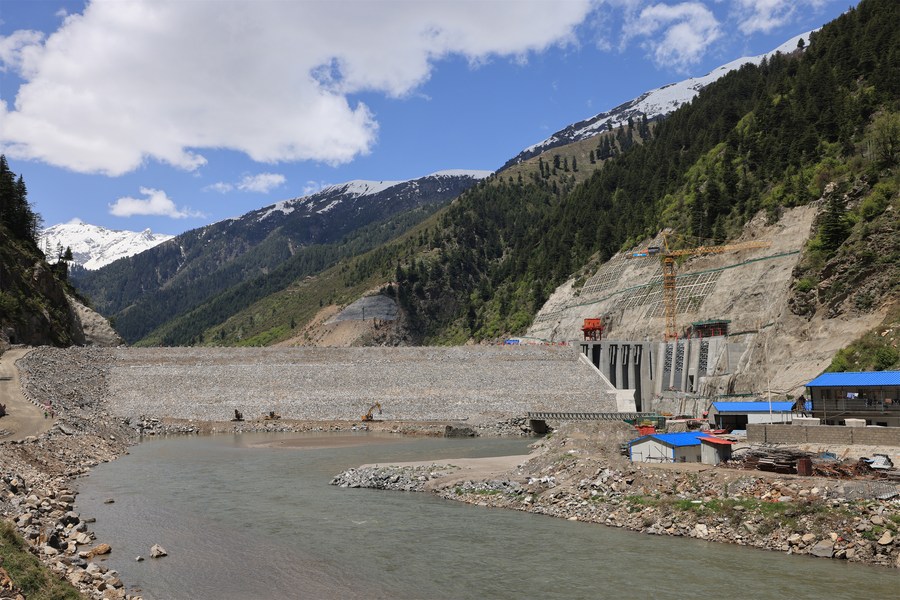
Photo taken on May 15, 2023 shows the dam of Suki Kinari Hydropower project under the China-Pakistan Economic Corridor (CPEC) in Mansehra district, Khyber Pakhtunkhwa province, Pakistan. (CGGC/Handout via Xinhua)
All-out facilitation will be ensured to the Chinese companies, particularly those related to the textile sector, to establish their industries in Pakistan, he said.
Launched in 2013, the CPEC is a corridor linking the Gwadar Port in southwest Pakistan's Balochistan province with Kashgar in Northwest China's Xinjiang Uygur Autonomous Region, which highlights energy, transport, and industrial cooperation in the first phase, while the new phase expands to fields of agriculture and livelihood, among others. ■


